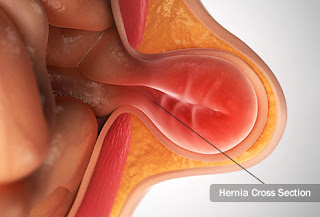World's first medical networking and resource portal
Community Weblogs
My Blog Browser Bookmark
Aug26
MALE INFERTILITY MAY OCCUR AFTER OPEN OR LAP MESHOPLASTY TO REPAIR INGUINAL HERNIA
Prof.Dr.Dram,profdrram@gmail.com,Gastro Intestinal,Liver Hiv,Hepatitis and sex diseases expert 7838059592,9434143550
 Inguinal hernia repair without mesh has no impact on male fertility and obstructive azoospermia. However, the use of mesh in bilateral open and/or laparoscopic repair may require the inclusion of male infertility as the part of informed consent in individuals that have not completed their family or currently under investigations. A new study was conducted to assess make infertility following its different method of repair. The aim of this systematic review was to establish the clinical impact of open (mesh and/or without mesh) and laparoscopic hernia repair (transabdominal pre-peritoneal (TAP) and/or totally extra-peritoneal (TEP)) on male fertility. The incidence of male infertility following various types of inguinal hernia repair is currently unknown. The lack of high-quality evidence has led to various speculations, suggestions and reliance on anecdotal experience in the clinical practice. An electronic search of the literature in Medline, Scopus, Embase and Cochrane library from 1966 to October 2015 according to PRISMA checklist was conducted. Quality assessment of articles was conducted using the Oxford Critical Appraisal Skills Programme (CASP) and their recommendation for practice was examined through National Institute for Health and Care Excellence (NICE). This resulted in ten studies (n = 10), comprising 35,740 patients. Sperm motility could be affected following any type and/or technique of inguinal hernia repair but this is limited to the immediate postoperative period (≤48 h). Obstructive azoospermia was noted in 0.03% of open and 2.5% of bilateral laparoscopic (TAP) hernia repair with mesh. Male infertility was detected in 0.8% of the open hernia repair (mesh) with no correlation to the type of mesh (lightweight vs. heavyweight). An estimated 80% of inguinal hernia operations involve placement of a knitted polypropylene mesh to form a "tension-free" herniorrhaphy. The prosthetic mesh induces a chronic foreign-body fibroblastic response creating scar tissue that imparts strength to the floor and leads to fewer recurrences.Eight institutions in the United States reported a total of 14 cases of azoospermia secondary to inguinal vasal obstruction related to previous polypropylene mesh herniorrhaphy. Reconstruction to restore fertility can be difficult secondary to fibrotic reaction. Before undergoing polypropylene mesh herniorrhaphy, men, especially of young reproductive age or with a solitary testicle, need to be carefully advised of potential obstruction and compromise to future fertility
Inguinal hernia repair without mesh has no impact on male fertility and obstructive azoospermia. However, the use of mesh in bilateral open and/or laparoscopic repair may require the inclusion of male infertility as the part of informed consent in individuals that have not completed their family or currently under investigations. A new study was conducted to assess make infertility following its different method of repair. The aim of this systematic review was to establish the clinical impact of open (mesh and/or without mesh) and laparoscopic hernia repair (transabdominal pre-peritoneal (TAP) and/or totally extra-peritoneal (TEP)) on male fertility. The incidence of male infertility following various types of inguinal hernia repair is currently unknown. The lack of high-quality evidence has led to various speculations, suggestions and reliance on anecdotal experience in the clinical practice. An electronic search of the literature in Medline, Scopus, Embase and Cochrane library from 1966 to October 2015 according to PRISMA checklist was conducted. Quality assessment of articles was conducted using the Oxford Critical Appraisal Skills Programme (CASP) and their recommendation for practice was examined through National Institute for Health and Care Excellence (NICE). This resulted in ten studies (n = 10), comprising 35,740 patients. Sperm motility could be affected following any type and/or technique of inguinal hernia repair but this is limited to the immediate postoperative period (≤48 h). Obstructive azoospermia was noted in 0.03% of open and 2.5% of bilateral laparoscopic (TAP) hernia repair with mesh. Male infertility was detected in 0.8% of the open hernia repair (mesh) with no correlation to the type of mesh (lightweight vs. heavyweight). An estimated 80% of inguinal hernia operations involve placement of a knitted polypropylene mesh to form a "tension-free" herniorrhaphy. The prosthetic mesh induces a chronic foreign-body fibroblastic response creating scar tissue that imparts strength to the floor and leads to fewer recurrences.Eight institutions in the United States reported a total of 14 cases of azoospermia secondary to inguinal vasal obstruction related to previous polypropylene mesh herniorrhaphy. Reconstruction to restore fertility can be difficult secondary to fibrotic reaction. Before undergoing polypropylene mesh herniorrhaphy, men, especially of young reproductive age or with a solitary testicle, need to be carefully advised of potential obstruction and compromise to future fertility.
Community Comments
User Rating
My Archive
- Kidney stones universally present hazard in north india,dillution by water prevent it
- Steroid and placebo effect equally for mild persisting asthma with low sputum eosinophils
- Government wants to fix public healthcare staff shortages with ayush docs: will it work?
- Plea in hc for payment of salaries of edmc, north mcd teachers and doctors
- 7 indian pharma companies named in us lawsuit over inflating generic drug prices
- Woman in up dies after explosion in her mouth during treatment,what is diagnosis?
- Woman in up dies after explosion in her mouth during treatment,what is diagnosis?
- Woman in up dies after explosion in her mouth during treatment,what is diagnosis?
- Air pollution ! mothers organising rally in london,anaesthetist choosing gas,will india follow?
- Cardiac arrest is always not sudden as understood -a study

 Comments (
Comments ( Category (
Category ( Views (
Views (